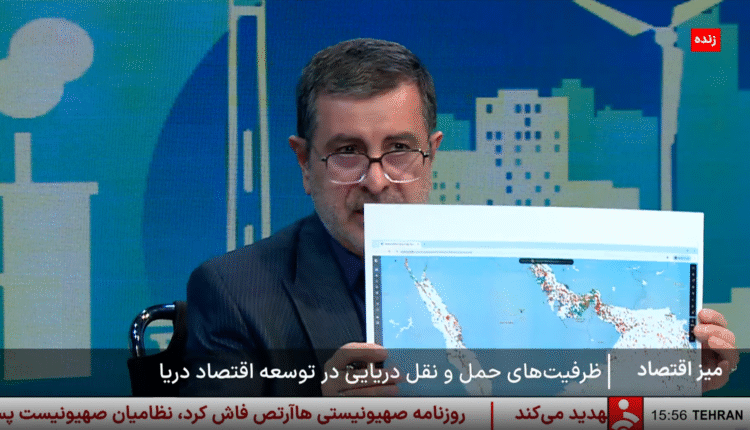According to SeaNews, quoting the Public Relations Department of the Iranian Shipping and Related Services Association, in the second part of Dr. Masoud Polmeh’s interview on the “Economic Desk” program on IRINN (News Network), the Secretary-General of the National Association of Shipping and Related Services emphasized the geo-economic and strategic significance of the Persian Gulf and the Strait of Hormuz, citing a live marine traffic map. Comparing the region to the Suez Canal corridor, he reminded viewers that a significant portion of the world’s energy is supplied through this route, yet its vast potential remains largely untapped. Criticizing the historical neglect of sea-based development opportunities, Polmeh identified this disregard as a barrier to job creation, investment, and reducing deprivation in the country’s coastal regions.
The second part of his interview is as follows:
“This map, extracted today at 12 noon from the Global Marine Tracking website, shows the positions of vessels, represented by colored dots.
At the bottom of the map, we see the Bab el-Mandeb Strait, the Suez Canal, and the Red Sea—recognized as the most crucial maritime corridor connecting Asia to Europe and America. This route offers a highly reliable trade connection with minimal cost and the shortest distance.
Now, look at the Persian Gulf—the volume and density of ships present there is massive.
Although the Suez Canal is of great importance and strategic value, it is still less significant than the Persian Gulf and the Strait of Hormuz.
It is well known that between 47 to 67 percent of the world’s fossil fuel reserves (oil and gas) are located in the Persian Gulf. Over 20 million tons of oil pass through this strait daily, and more than 25 percent of the world’s energy needs are supplied from this region.
Such is the immense importance hidden within the sea. So, what have we done for the sea?
Unfortunately, despite repeated mentions of the maritime advantages, we have not paid the necessary attention.
The sea offers conditions through which we can not only meet our coastal and maritime needs but also compensate for the underdevelopment in deprived areas, create jobs, and facilitate investments. Yet, this capacity has remained neglected. I hope we can finally make proper use of the opportunities it provides.”

